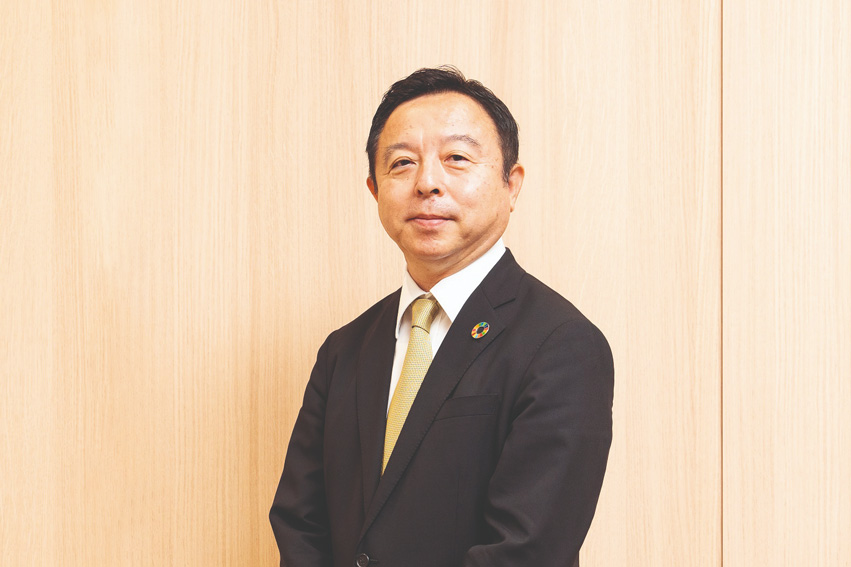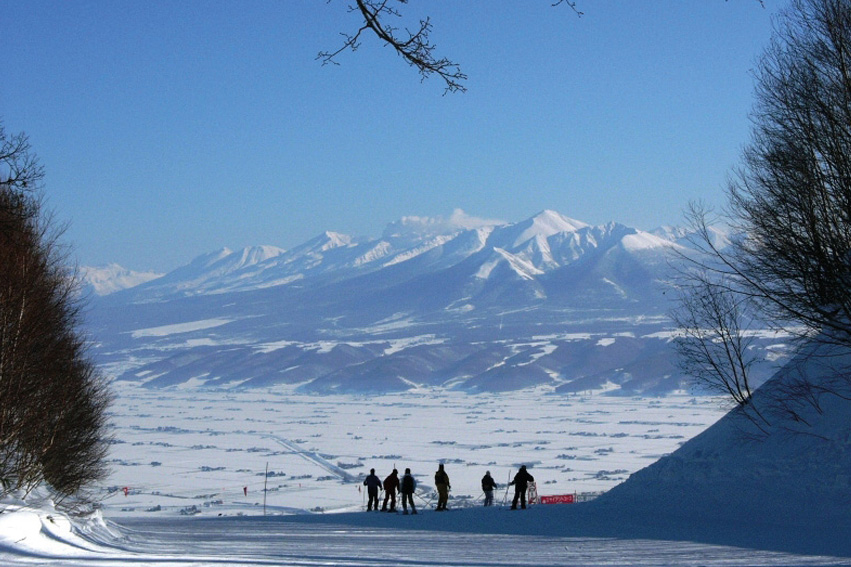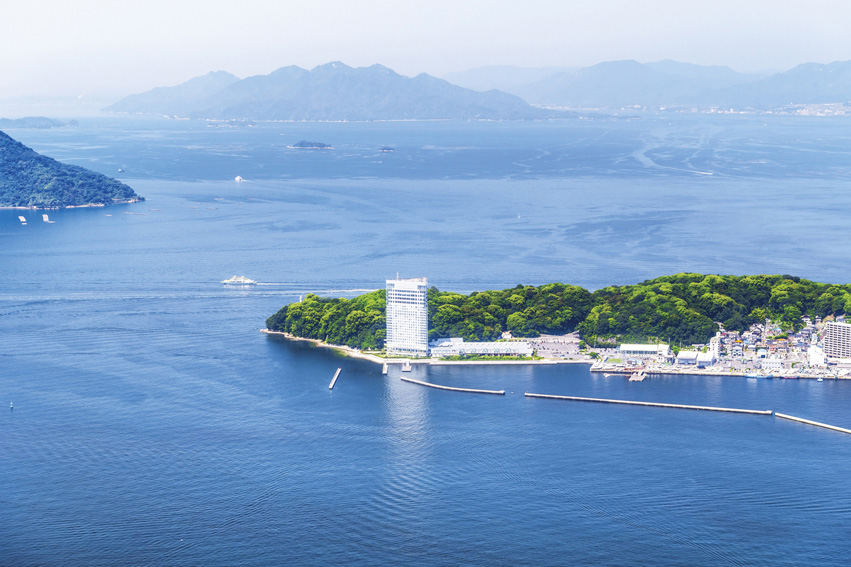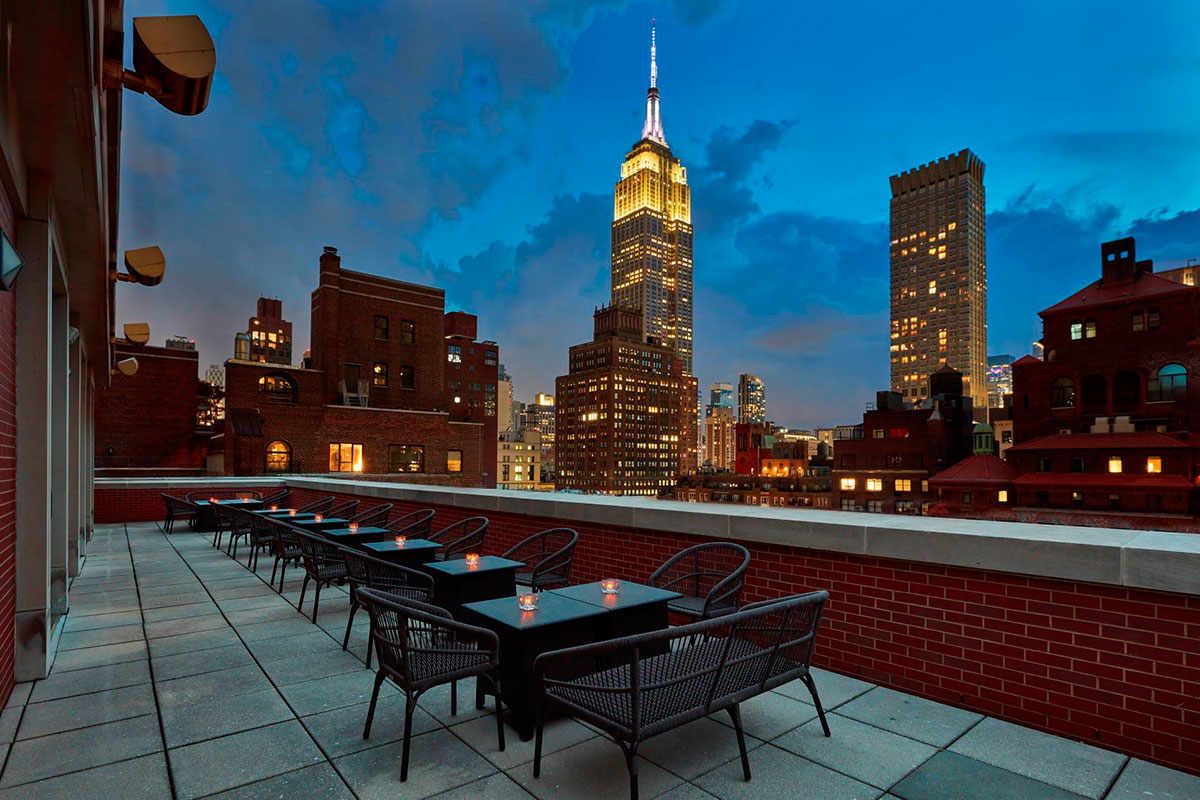Seibu Prince Hotels Worldwide, under the visionary leadership of Yoshiki Kaneda, has established itself as a frontrunner in Japanese hospitality. With a history spanning over a century, the company's dedication to embodying omotenashi (distinct Japanese hospitality) is evident across its vast network, from Sapporo to Okinawa, as well as iconic cities around the world like New York and London.

In 2019, overseas arrivals to Japan saw a record high of 31.8 million tourists, but with COVID-19, this dropped to just 250,000. Nevertheless, Japan still ranked number one on the World Economic Forum’s Travel and Tourism Development Index during this time. The government also maintains a target to welcome 60 million visitors annually by 2030. Furthermore, the first half of this year has already seen 10 million visitors welcomed into the country. As a hotel operator, what makes Japan a prime tourist destination?
With over 25 years of firsthand experience in this industry, having lived and worked in the US, Singapore and Australia, I have come to realize that people worldwide share a profound curiosity about experiencing Japan. Japan's assets and resources are truly exceptional, with its rich history, vibrant culture, diverse food culture and stunning natural environments. Furthermore, Japan's appeal is amplified by its long history, like other Asian nations. It has an old civilization such as Kyoto, boasting a heritage dating back 1,200 years. Beyond its historical and cultural allure, Japan embraces a more contemporary identity, often referred to as "Cool Japan," which encompasses various subcultures like anime and manga. This dual charm is a unique feature of Japanese tourism.
Japan's food culture stands out as rare and unique compared to other cuisines across the globe. Recently, it has gained widespread popularity in the past decade, extending beyond the realms of ramen and sushi to offer a wide range of opportunities to savor new and distinctive flavors. While Tokyo and Osaka continue to draw the largest number of inbound travelers, Japan remains home to numerous hidden national treasures waiting to be discovered. These include onsens, hot springs, resorts and rich natural wildlife, which even many Japanese do not know about.
Another compelling aspect of Japan as a top tourist destination is its solid infrastructure, which ensures convenient transportation and a safe, clean and hygienic environment. While some travelers may seek more adventurous and dangerous destinations, they only make up the minority. Japan's exceptional public transportation system, known for its reliability and punctuality, makes travel planning effortless, even for those with limited time. In addition to its outstanding qualities as a destination, Japan offers a significant advantage for tourists in the form of a weak Japanese yen. Visitors can savor the finest sushi at a fraction of the price they would pay in the US.
Lastly, I would like to share a personal anecdote that exemplifies Japanese culture. A few years ago, I misplaced my cell phone while traveling on the Keiō Line. In many other countries, losing a phone might be the end of the story, but in Japan, I called the station as soon as I realized my phone was missing. They had it because a kind soul had turned it in. This experience reflects the honesty and sincerity that Japanese people are known for.
Even though 2019 was a record year for Japan, 40% of tourists went to Tokyo while less than half of the nation’s prefectures saw 1% or less. Last year, the government considered tourism as key to regional development as a way to revitalize local economies that have been withered due to Japan’s demographic decline. In your opinion, what can be done to attract visitors to these smaller, poorer regions? How can hotels like Seibu Prince Hotels contribute to and promote regional tourism?
In March, Japan's Ministry of Tourism announced a new policy aimed at promoting sustainable tourism, with a particular focus on regional tourism. The government's efforts to revitalize the tourism sector extend beyond the goal of hosting 60 million visitors annually. They also aim to increase the average spending per traveler in Japan to approximately JPY 200,000.
Before the onset of COVID-19 in 2019, tourists spent an average of 1.4 days in regional areas. The government is determined to raise this figure to a minimum of two days, underscoring its commitment to support and expand the regional tourism industry. While major cities like Tokyo and Osaka continue to attract tourists, I believe that the real treasures of Japan's tourism industry often lie in its regional areas.
Over the past two decades, Japan's appeal as a tourist destination has grown significantly, supported by extensive media coverage, including recognition from publications like Newsweek and the proliferation of online platforms. Notably, this year, the New York Times listed Morioka, Japan as the second top destination among its "Top 50 Destinations" for 2023, with London securing the top spot. As a result, a considerable number of American and international travelers have flocked to Morioka in Iwate Prefecture.
The writer of this particular article chose Morioka for three primary reasons: the city's aesthetic beauty, its delicious food and the kindness of its people. Morioka City has taken steps to ensure a warm welcome for the influx of inbound travelers, including the production of English-language maps and the provision of strong internet connectivity.
Our Seibu Prince Hotels & Resorts, with over a century of history, has consistently fostered mutually beneficial relationships with regional areas. Since last year, we started various promotions for our hotels with the tagline "If you are looking for amazing views, you will find them at the Prince."

Beautiful powder snow at Furano Ski Resort
Surprisingly, Kushiro, in Hokkaido, is one of the world's top three destinations to witness breathtaking sunsets, alongside Bali, Indonesia and Manila, the Philippines. Guests can experience the magic of the sunset and golden hour from our Kushiro Prince Hotel. Additionally, Kushiro is the birthplace of Japanese robatayaki, a method of cooking, similar to barbecue, in which items of food grilled at varying speeds over hot charcoal originated.
Nestled 1,800 meters above sea level in Gunma Prefecture, the Manza Prince Hotel is a hot spring resort, offering year-round access to these rejuvenating waters. It is the highest location in Japan where you can enjoy hot springs regardless of the season and is easily accessible by car throughout the year. Furthermore, it is the nearest hot spring to the stars, providing guests with the unique opportunity to soak in these tranquil waters in every season.
Our strategy centers on promoting our group both domestically and internationally by emphasizing our ability to provide guests with the most breathtaking views. Going forward, we plan to leverage various media channels to achieve this goal.
Seibu Prince Hotels is competing with many other hotel chains within Japan, such as Okura or Nishitetsu Solasia, that also have similar regional locations. How are you able to differentiate yourself from these other hotel chains in Japan?
We possess distinct competitive advantages within the domestic market. Our ability to maintain a balanced portfolio of properties in both urban and resort areas across Japan is a result of our extensive experience in the industry, spanning over a century. We have secured prime locations such as Karuizawa, Hakone, Furano in Hokkaido and Kawana as golf resorts.
Our second competitive advantage is being able to hold multiple brands under one hotel chain group, which is something unique within the Japanese hotel industry. It allows us to cater to diverse demographics and target groups unlike other management hotel chains that predominantly focus on cities, or non-luxury hotels, we emphasize resort hotels, Prince Smart Inns, which is the limited service for accommodation, and luxury brands, as well as offering versatile choices for a range of travelers.
Furthermore, we excel in managing event spaces for conventions, exhibitions, and large-scale corporate meetings, often referred to as MICE. As part of the government's efforts to boost the tourism industry, one concrete initiative is to expand Japan's role as a host for international meetings and conferences, including government and diplomatic summits.
The government has a specific target to have over 30% of international conferences and meetings in Japan. One of those has been the recent G7 summit that was held in Hiroshima in 2023. Three of the meetings during the G7 took place at our Prince Hotels. One was at the Sapporo Prince Hotel, which was about energy and the environment, while the Karuizawa Prince Hotel hosted the summit for foreign ministers. In May, as a part of the G7 summit, one of the key events took place at the Grand Prince Hotel Hiroshima.
The G7 Summit is rotated among seven member countries every seven years. Seven years ago, it was held in Kintetsu Miyako Hotel in Ise Island, but before that, it was in Hokkaido at the Windsor Hotel in Toyako, Lake Tōya area. Then seven years before that, several hotel groups, including the Imperial Hotel, Okura and Prince worked together in order to maintain the infrastructure and support the event.
In the most recent edition, the Prince Hotel Group independently provided crucial support to the G7 Summit Holdings, which included mobilizing around 100 staff members from across the country. The summit attendees, including prime ministers and national leaders, were highly satisfied with the exceptional hospitality and delectable cuisine. President Macron of France, in particular, expressed his delight. In a heartwarming moment, we took a commemorative group photo, and President Macron shook hands with 50 of our hotel staff who lined up at the hotel lobby to bid them farewell. It was a great opportunity for us. The staff was so touched, and it really improved our employees’ morale and motivation. These strengths set us apart in the industry.

Grand Prince Hotel Hiroshima, main venue for G7 Summit
Your vast network from Sapporo all the way down to Okinawa adds up to 59 locations domestically. Do you have a personal favorite location or region that you recommend for people to visit through your hotels?
All these destinations are truly remarkable and highly recommended for anyone considering travel. I think Newsweek International presents an exceptional opportunity for readers, especially those in Europe, North America, the United States, Oceania and Australia, to consider Japan as their next travel destination.
We have to continue to promote the appeal of Japan and encourage more people to visit. When you look at a map that is made here, Japan is located in the center of the map. However, in another country like France for example, Japan is on the very far edge, making it feel like a distant land. Nonetheless, we remain hopeful that there are individuals who continue to be captivated and curious about experiencing the beauty of Japan. Last year, the Japanese government finally lifted the major restrictions imposed due to COVID-19, and we feel that the environment for more and more visitors coming to Japan is now in place, and now is the time to strengthen our communications.
On March 28th 2023, Seibu Prince Hotels announced that they had reached an agreement to start managing what was known as the Hyatt Regency Osaka and rebranded to Grand Prince Hotel Osaka Bay. What was the motivation behind this deal, and what are your expectations for this hotel?
In April 2022, the asset-light strategy allowed us to emerge as Seibu Prince Hotels Worldwide. Alongside the name change, our business model transitioned from an owner-operator model to an operator specialist. Under this model, we manage properties on behalf of owners through management contracts, aligning with the global hotel industry's standard practices. Highly specialized operation skills and a vast network of hotels under our operation are critical to the success of this new model. Owner-operators need to have a substantial cash flow.
Our primary business strategy revolves around expanding our network of hotels under management contracts, both domestically and overseas. A notable achievement is our management of the Hyatt Regency Osaka, which has been in operation for three decades under the Hyatt Regency brand. In this case, we are reversing the trend of global brands managing Japanese properties, making it a strategic move to further strengthen our portfolio. Since we did not have a full-service hotel within the Osaka area, Grand Prince Hotel Osaka Bay has become a flagship property, offering extensive meeting spaces for conventions and MICE functions.
Our overseas business expansion is a vital component of our future growth strategy. We aim to extend our luxury hotel brand, The Prince Akatoki, which we introduced with the rebranding of an 82-room luxury hotel in London in 2019. Akatoki is a Japanese word that means dawn or sunrise. This hotel received a five-star rating from Forbes in its first year of operation, and it is one of the 21 five-star hotels in London. I have been supporting the development of the Prince Akatoki brand for a long time.
Our overseas hotels are designed to cater to international customers, emphasizing Japanese management style. Our brand's key attributes focus on attention to detail and craftsmanship, creating a unique luxury experience. It might be a little complicated, but these are the attributes that we're looking to develop within our luxury brand overseas.
In the global hotel industry, mega brands such as Marriott, IHG, Hyatt and Hilton dominate the landscape, boasting extensive distribution networks. Meanwhile, numerous luxury hotel brands that originated in Asia, like The Mandarin Oriental, Peninsula and Shangri-La, are competing vigorously with these industry giants. Our focus for expansion beyond Japan centers on establishing ourselves as a prominent luxury brand.
In December 2023, we opened a hotel in New York under a rebranding management style. This property is The Kitano Hotel New York, which has been under the ownership of a Japanese entity for over 50 years. It is currently undergoing renovations, and we named it The Prince Kitano New York. We opted not to put it under the Akatoki brand, as we wish to preserve Kitano's established history.

Rooftop bar with a beautiful night view of Manhattan in The Prince Kitano New York
Prime Minister Kishida has stayed at this property, as well as during the recent UN summit held in September, 2023. The owner has invested significantly in creating a top-notch Japanese restaurant within the vicinity, aiming to establish it as New York's premier Japanese dining destination, contributing to the promotion of Japanese cuisine in the area.
Our overseas strategy involves gaining a strong foothold in key cities such as London, Tokyo, New York, Singapore and Sydney. At the same time, we aim to extend our luxury hotels and the Prince brand to these strategic locations, including resort destinations, with the objective of reinforcing our brand's global image. One of the challenges going forward is how we are going to address the labor shortage in this industry. This issue was raised by investors even during my IR meeting in London last year. It is a pervasive challenge that the entire industry faces. Many businesses that were adversely affected by the COVID-19 pandemic have struggled to recover. The tourism sector as a whole has been identified as one area with the greatest growth potential. Over the next 10 years, it is projected to grow annually at a rate of more than 5%, double the global economic growth rate. This translates to approximately one in 10 individuals in the working population being employed within the travel industry, not only in hotels and accommodation but also in the transportation and other travel related sectors as well.
The severe labor shortage in the sector is a matter of grave concern. To address these challenges, we have ensured that we were able to meet the three-fold satisfaction: customers, employees and owners. Our commitment to satisfying owners is underpinned by sound management structure and financial performance. We place great importance on creating a fulfilling working environment and are actively working on enhancing employee benefits and salary systems. Many of our employees desire to work overseas, so we began a one-year training program in London and Hawaii, with three individuals selected out of 30 applicants.
Fortunately, we have been able to consistently maintain full staffing levels, never encountering staff shortages in our hotels. We adapt our staffing and assignments seasonally, aligning with the needs of snow resorts in winter and summer resorts catering to golf enthusiasts. In collaboration with hotel management schools, we provide part-time work opportunities for students, while also subsidizing their school fees. While there is still much work ahead, our top priority is ensuring the satisfaction of our employees. As a luxury hotel brand, personalization of service is key. We are actively exploring digitalization and cutting-edge technologies, including AI, in our operations. For instance, we plan to implement machines for remote check-in and check-out for our smart inn hotel brands.
I wholeheartedly encourage those visiting Japan to consider staying at our Prince Hotels, which boast a remarkable century of history and an unwavering commitment to exceptional service.
0 COMMENTS